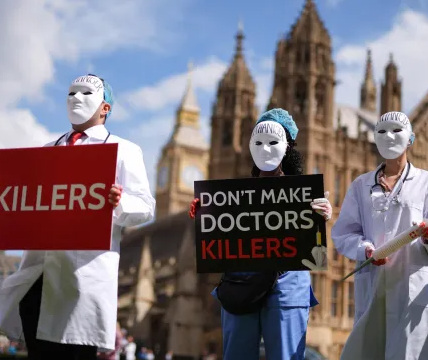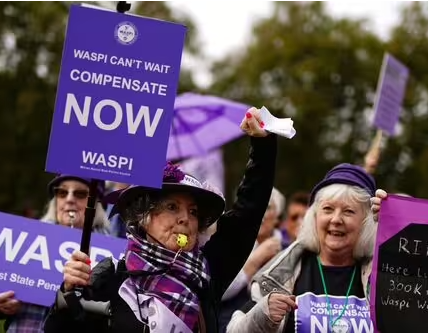Silver Voices is calling on the Chancellor to reverse the decision to strip millions of OAPs of the lifeline.

Chancellor Rachel Reeves (Image: Getty)
Rachel Reeves has been urged to U-turn on winter fuel payment cuts after a boost to the UK economy.
New projections by the International Monetary Fund (IMF) show the economy is set to grow faster than previously thought this year as drops in inflation and interest rates help drive spending.
Dennis Reed, director of the Silver Voices campaign group, said: “The encouraging news on improved growth rates for the UK and the likely lowering of the borrowing costs of the national debt, provide plenty of flexibility for the Chancellor to restore the winter fuel payment for all pensioners this year.
“We would accept a consultation about the future of the winter fuel payment for 2025 onwards, with a view to ensuring that all those older people with modest incomes are not penalised.
“It is no longer possible for the Chancellor to argue that Labour ‘had to do this’ for the sake of the economy, when the economic forecasts indicate otherwise.”

Silver Voices director Dennis Reed (Image: GETTY)
The IMF said UK gross domestic product (GDP) is due to grow by 1.1% in 2024 in a significant upgrade after predicting 0.7% in July.
The UK economy is then expected to grow by 1.5% in 2025, with the IMF maintaining its prediction from earlier in the year.
The Chancellor said: “It’s welcome that the IMF have upgraded our growth forecast for this year, but I know there is more work to do.
“That is why the Budget next week will be about fixing the foundations to deliver change so we can protect working people, fix the NHS and rebuild Britain.”
The upgrade provides a major boost for the Government ahead of its autumn Budget on October 30.
It comes after Ms Reeves sparked a backlash in July when she axed the winter fuel allowance for most OAPs.
The previously universal payments of up to £300 a year will now be restricted to only those on pension credit.
She blamed a £22 billion black hole in the public finances left by the Tories, which they have denied.
The controversial change will mean around 10 million older people miss out and is expected to save the Treasury £1.4 billion a year.







